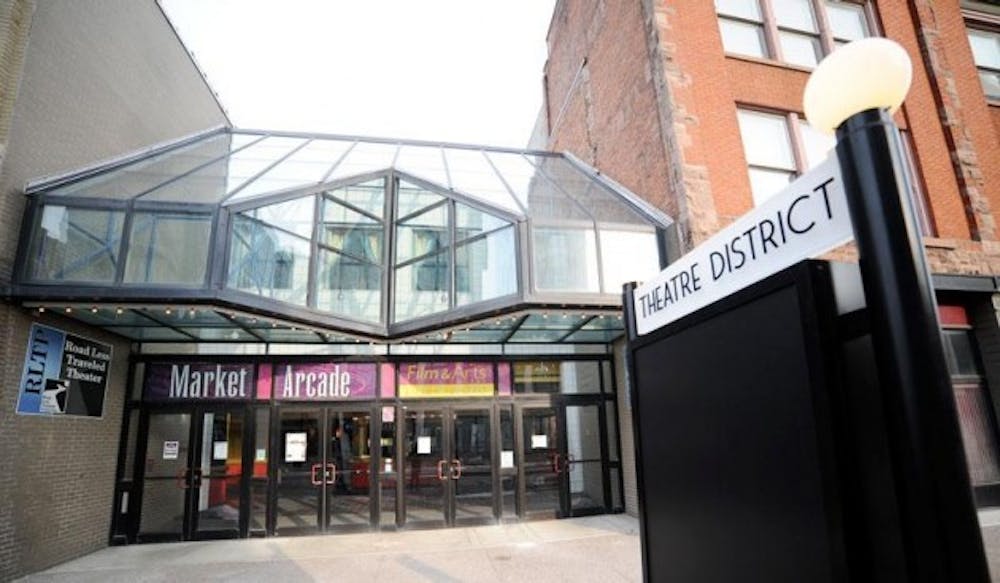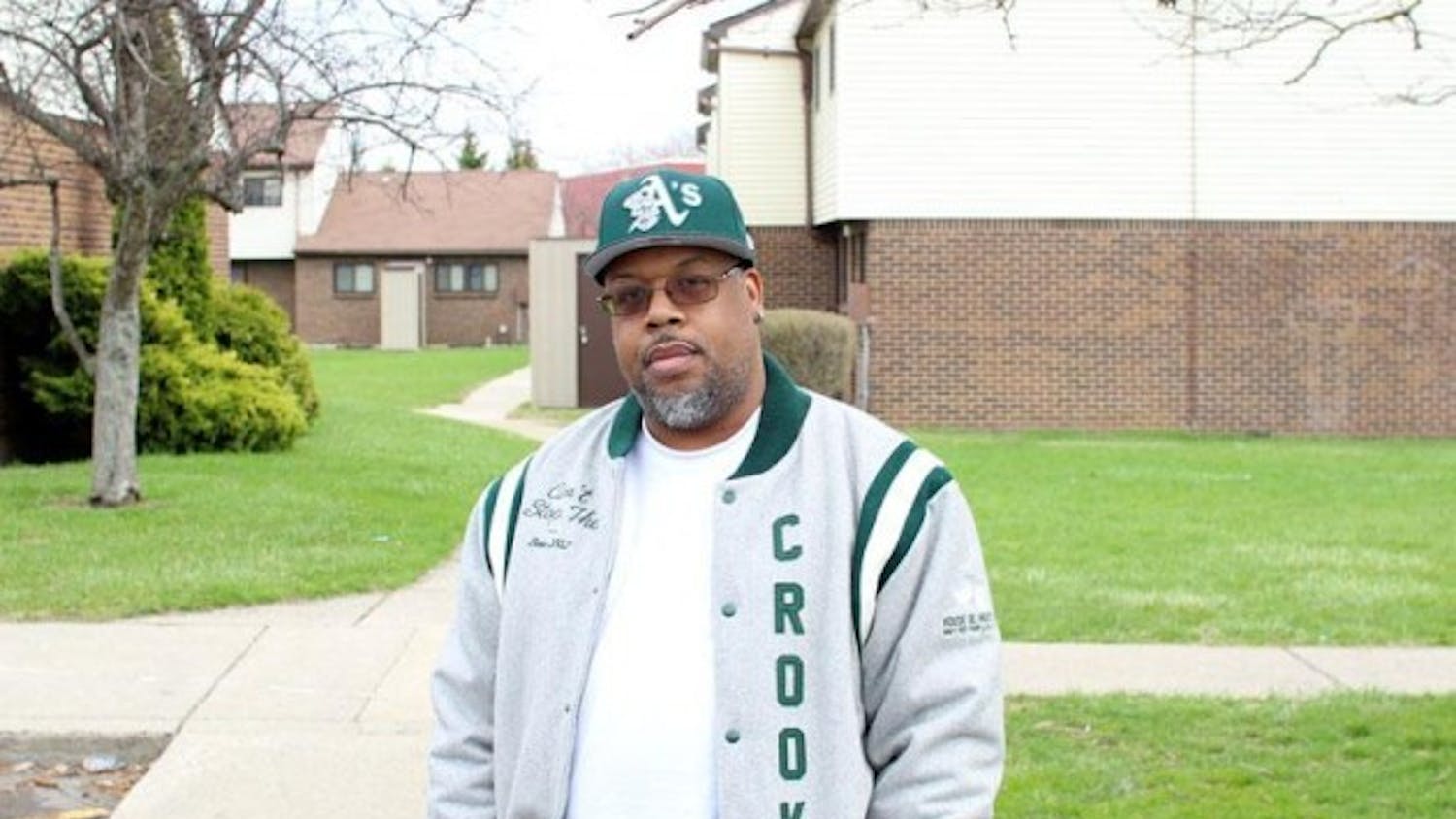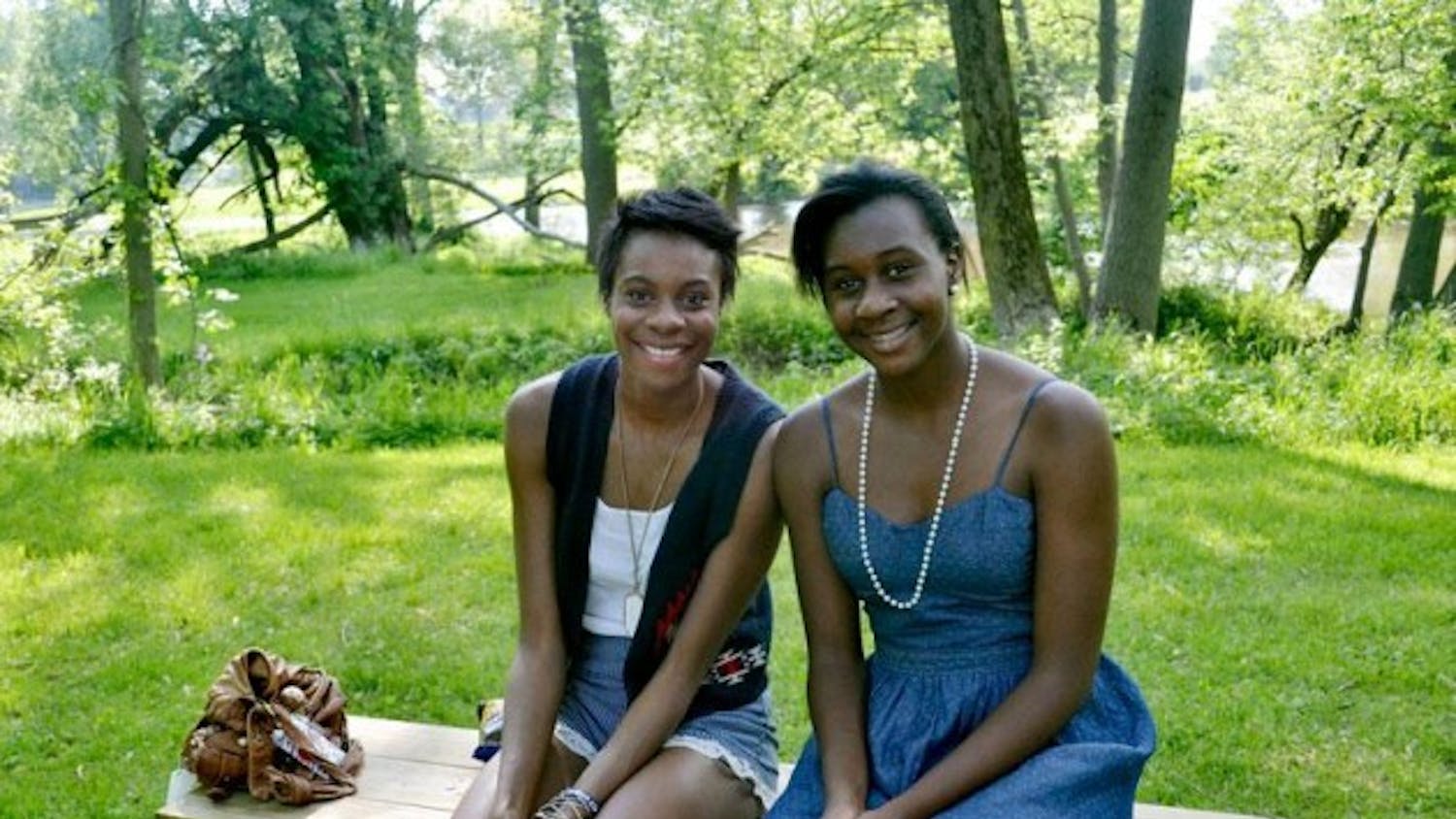Bruce Jackson and Diane Christian have hosted the Buffalo Film Seminars since 2000.
But the concept of their class, which doubles as a popular gathering for the film community in downtown Buffalo, is under threat. The theater that hosts the seminar, the Market Arcade Film & Arts Centre, is at risk of being privatized - and some worry it may wind up not functioning as a theater at all.
The City of Buffalo owns the building - which is located at 639 Main St and includes the theater, Bijou Grille and some offices - and is putting it up for bid. Market Arcade Film & Arts Centre Inc., a not-for-profit corporation, currently manages the theater, the board of which recently made Jackson chairman. The day-to-day operations of the theatre are handled for the board by Dipson Theatres.?
The mayor's office stated the city wants the theater to remain operating as it is now. But Jackson and Christian, who are both distinguished SUNY professors, are worried they and other groups who use the venue will lose access.
Jackson and Christian have used the theater, which is the only movie theater in downtown Buffalo, for their class for the past 14 years; they've shown 14 or 15 films each semester and have screened over 300 movies.
But their intent is not just to screen films - they aim to bring students downtown and become immersed in Buffalo's city and film culture.
"[Diane and I] could have done this in the Center For the Arts ... but we thought it was important to do it in a real movie theater in the heart of a real city," Jackson said. "For all kinds of reasons - some of them pedagogical and some of them having to do with the cultural life of the city."
Michael DeGeorge, the City of Buffalo Police spokesman, reiterated a statement made by the mayor's office, which said it wants to see "the operation as a cinema and local programming and festivals continue."
"Since 2012, Buffalo has experienced $4.3 billion dollars in new economic development activity providing the opportunity for the City to transition the property back to private ownership," according to the statement.
Jackson said that with the City of Buffalo, it's hard to determine what is going to happen "when things are happening behind closed doors."
He also said that although he has heard some new operators would keep the theater, others might turn it into condos or interfere with the operations that matter to the theater, including the Buffalo Film Seminars.
For many in the Buffalo and UB community, including Barbra Bono, an associate professor of English, the theater has been a catalyst for film festivals over the years.
The Market Arcade, which is the only publicly owned eight-screen theater in the country, has been a community resource and town connection for over 15 years, according to Bono.
In addition to Buffalo Film Seminars, the theater has hosted multiple film festivals and shows, including the UB Gender Institute International Women's Film Festival and the local experimental theater company Road Less Traveled.
"It would be a sad irony if the city withdrew its support for and stewardship of the space just as UB is planting itself more thoroughly at the heart of the city of Buffalo's downtown revival with initiatives like the new Medical School and the Gateway Building," Bono said in an email.
The theater needs expensive improvements and renovations, including fixed roofing and new air conditioning, concession stands and stadium seating, according to Jackson.
Notably, the theater needs new projection equipment capable of showing the films, which are increasingly being sent out as digital files rather than in canisters of film. Jackson said the theater needs seven new projectors because one has already been donated; each would cost roughly $60,000.
Christian pointed out that donors would be open to pay for the upgrades, but that's not an option.
"The problem is really political," Christian said. "A lot of the foundations really love this operation and would pay to upgrade it, but they can't do that unless the city would give us a lease ... The city won't give us a lease because they want to sell it and make money, they say."
Christian and Jackson reflected on their class' beginning and its growth over the years. Christian said over 80 people - including the 40 UB students registered for the class and roughly the same number of ticket holders - attended the first screening of the Buffalo Film Seminars at Market Arcade Jan. 19, 2000.
The film, a showing of William Wellman's The Public Enemy (1931), gathered a decent crowd. But by the fourth week, which was a showing of Triumph of Will (1935), the theater had to turn people away. Shortly after that, the Seminars moved from a screening room that held 154 people to one that held 324. The event has stayed there ever since.
"The students were at the heart of it, but we opened all the discussion to anyone who paid for a ticket," Christian said. "Almost immediately it was a big success ... in that first semester of 2000, we put the theater in the black ... It was really amazing ... it's a phenomenon."
While the cultural learning experience behind the Buffalo Film Seminars is under threat, the class is not. Jackson and Christian could use Dipson's Amherst Theatre near South Campus. Jackson said the Amherst Theatre would actually draw a larger audience because it is more accessible to students and the Amherst community.
But both Christian and Jackson would like to remain at the Market Arcade because of the theater's significance to the Buffalo community and the cultural experience for their students.
The city will announce which bid it chooses this summer.
email: arts@ubspectrum.com





